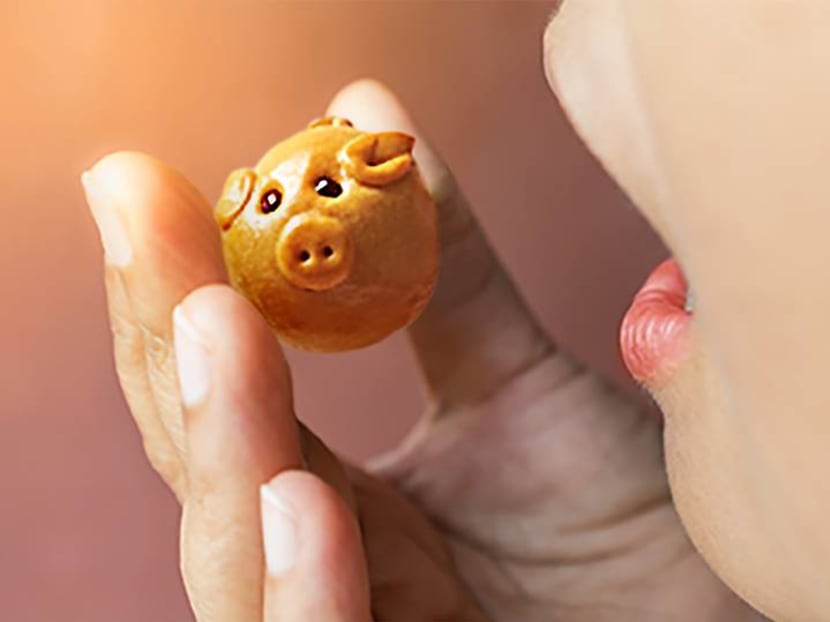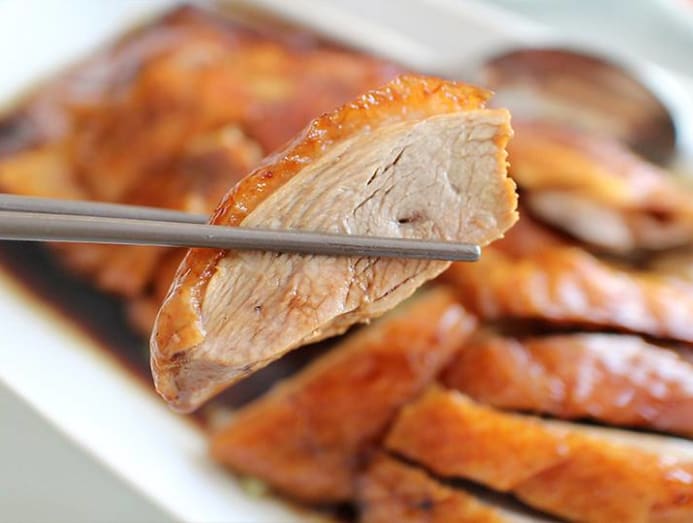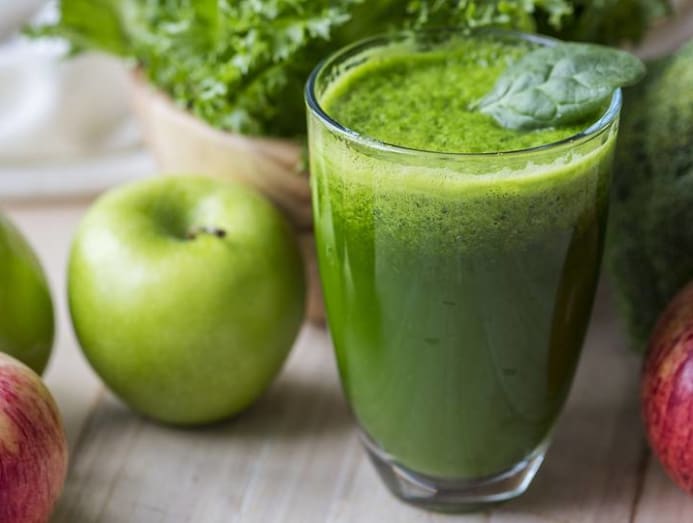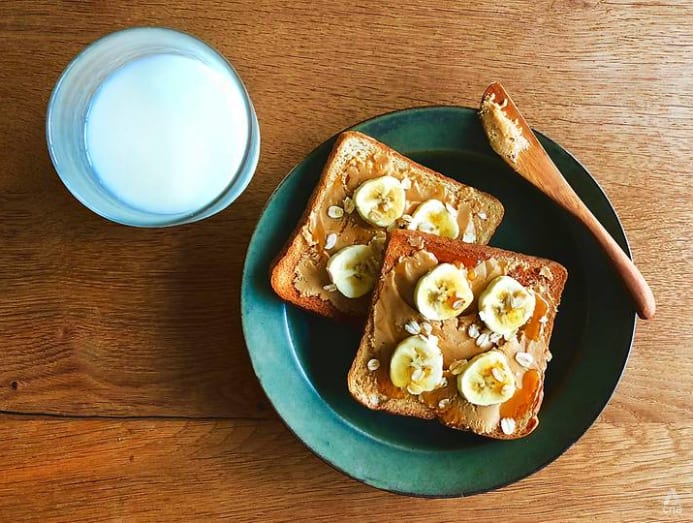Pigged out over Chinese New Year? Here's how to help the over-indulgence
It may surprise you but the experts say you don't have to go on a juice cleanse or stick to soup to mitigate all that feasting. Here's what you can do instead.

(Photo: iStock)
It is very easy to get into the spirit of this year’s zodiac animal that is the pig, since Chinese New Year celebrations always centre around food.
And copious amounts of it, too, starting with the high-calorie, high-fat and high-sugar snacks you stocked up on even before the festivities began.
Then, there's the feasting that was reunion dinner and the many rounds of lohei with colleagues, friends, family, clients, neighbours... Any excuse to get together and eat.
It’s not surprising, then, that the weighing scale is now registering a higher number and your waistband is feeling tighter.
READ: It's not just about what you eat but when you eat
Here’s how it breaks down: An extra 3,500 calories each day will generally gain you 0.5kg, wrote Alefia Vasanwala, Mount Elizabeth Hospital’s principal dietitian, on the Health Plus website.
It can be easy to hit those numbers. Yusheng, for instance, has over 500 calories. The premium soup Buddha Jumps Over The Wall can have over 350 calories per bowl.
Love roasted duck? Just two slices of the unctuous meat can set you back by 100 calories. Speaking of fatty dishes, there’s also the popular pork belly – over 400 calories per serving.

Factor in CNY snacks such as pineapple tarts, bak kwa and kueh bangkit, and it’s not impossible to surpass 5,500 calories a day during this period.
Gaining a few kilograms may not sound like a big deal but in the grand scheme of things, it can be cause for concern.
“When there is a 1kg-to-2kg weight increase that is not lost after each feasting, which can happen at least three or four times a year, the risk of obesity and associated diseases such as diabetes, hypertension, and heart disease can increase,” said Senior Dietitian Phoi Yan Yin from Changi General Hospital’s (CGH) Dietetic Consultation.
READ: What your poo says about your health
For now, your liver probably took the biggest hit as it is the organ responsible for breaking down fat and alcohol, which people tend to go overboard with during CNY.
“Fatty liver is a chronic condition that involves the build-up of bad fats in the liver,” said Joanne Loh, a dietitian with Yishun Community Hospital’s Nutrition And Dietetics department.

The condition can be exacerbated by excessive alcohol consumption, said Loh. “Too much alcohol in a short period of time can overwhelm the metabolism process and lead to fatty liver.”
Other than the liver, those extra glasses of whisky and beer may also weaken vital organs, such as the heart, as alcohol can impact how oxygen and nutrients reach them, said Loh.
NO NEED TO DETOX?
Interestingly, for all the damage and discomfort from the over-indulgence, experts say there is – surprise, surprise – no need to detox or fast.
“There isn’t a need to because your body can handle the excess if the over-indulgence happens once in a while,” said gastroenterologist Dr Reuben Wong from Gleneagles Hospital’s gutCARE.
“You could cut back or eat light for a few days afterwards to try to compensate for the damage.
"But it is not advisable to go from one extreme to the other, which is what happens when you fast or detox.”
Loh agreed. “The digestive system can withstand a lot of stress from overeating.
"In fact, a short period such as a week of feasting may not make much of a difference to your triglyceride and cholesterol levels.”
Phoi also has the same faith in the body’s ability to handle the stress of over-eating. “Our bodies are normally able to regulate triglyceride, cholesterol, and sugar levels over short periods of over-indulgence,” she said.
“However, if excessive and uncontrolled food intake happens frequently, these levels will start to trend upwards within months.”
Dr Lim Su Lin, who is the chief dietitian at the National University Hospital (NUH), doesn’t think that detoxing is necessary either.
“It is a sexy word to make people feel that they can undo their binge-ing during the festivities,” she said.
But if you feel that a juice cleanse is the only way to make you feel better after too much oily food, there’s no harm in it – just don’t go overboard.
“The idea behind post-festivity compensation is to go for lower calories and more healthy food choices.
"Fresh fruit, and vegetable or fruit juices, especially those high in antioxidants, fulfil these purposes as they are much lower in calories than a full meal,” said Dr Lim.
READ: Fruits can be your diet ally or saboteur – depending on how you consume them, say dietitians
“However, it is not good to do this in place of too many meals as fruit and vegetables alone lack other essential nutrients such as protein, essential fat and B vitamins.
"Returning to regular, healthy, balanced meals is still better than cycles of binge-ing and fasting,” she said.
And there is no need to see a doctor immediately for your digestive discomfort either, said Dr Wong, unless you experience severe cramps and vomiting.
Stop eating and drink plain water (avoid sugary drinks) to help the cramps pass.
But if you have severe abdominal pain that doesn’t subside after a day and is accompanied by fever and diarrhoea, head to the doctor.
WHAT YOU SHOULD EAT – OR PASS – TO RECOVER
Just as there is no need to go on a diet of juices or plain porridge to recover from the CNY over-indulgence, it is also not necessary to pop probiotic pills or eat yoghurt to help your digestive system along – unless you have diarrhoea or irritable bowel syndrome (IBS).
“In patients with acute infectious diarrhoea, probiotics may have beneficial effects in shortening the duration of illness and reducing stool frequency,” said Dr Alex Soh, associate consultant with the Division Of Gastroenterology And Hepatology at NUH.
“Patients with IBS may experience reduced overall symptoms and abdominal pain with probiotics.”
CGH’s senior pharmacist Benjamin Chee, also said to hold the yoghurt and other food with probiotics as there aren’t any studies supporting their use in aiding digestion.
“We are unable to advocate the use of probiotics to aid digestion, or to recommend an appropriate dose or species of probiotic for use in this instance,” he said.
“But there’s no reason to exclude such foods in your diet, if you enjoy them in the first place.”
READ: Is it ok to skip meals, even occasionally? Here's what happens to your body
So, what should you eat after some intense feasting?
“The ideal breakfast after a night of feasting should be no different from an ideal breakfast on any normal day,” said Phoi, who regarded breakfast as your opportunity to include more whole grains, fibre, calcium and vitamins in your diet.

“This may be in the form of two slices of wholegrain bread with peanut butter and slices of banana, washed down with a cup of calcium-fortified soy milk.
"Or a bowl of multigrain cereal in milk, topped with a handful of mixed nuts and cut fruit.
"These options contain fibre and protein that keep you full until lunch, while being low in unhealthy fats and refined sugars.”





